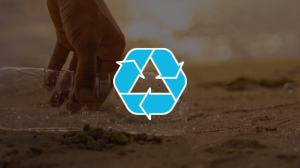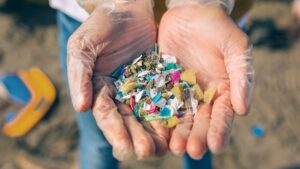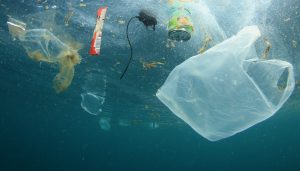Mutant enzyme could break down plastic bottles for recycling in hours, scientists say
Scientists say they’ve “engineered” a mutant bacterial enzyme that can easily break down plastic bottles for recycling in a matter of hours.
Originally discovered in a compost heap by researchers in 2012, the enzyme reduces the bottles to their initial chemical building blocks which are then recycled to make brand new bottles.
The new and improved enzyme was unveiled in a research paper published Wednesday in the journal Nature.
The team behind the development claimed that even though enzymes of the same kind have been manufactured before, none have come close to the same effectiveness as theirs in terms of being able to degrade plastic bottles.
The researchers, which were comprised of scientists from France-based “green chemistry” company Carbios and the Université de Toulouse, discovered that the improved enzyme breaks down 90 per cent of plastic bottles within a span of 10 hours — a significant increase from the initial enzyme degradation of just one per cent after several weeks.
“This highly efficient, optimized enzyme outperforms all PET hydrolases reported so far,” the researchers stated in the paper.
Polyethylene terephthalate (PET) is the most-used polymer in the creation of bottles, polyester clothing fibres and food containers. The material can take hundreds of years to break down in the environment.
According to the United Nations, as much as 300 million tonnes of plastic waste is created every year, as of 2018. They also estimate that since the 1950s, more than eight billion tonnes of plastic have been produced worldwide — with about 60 per cent of those plastics ending up in either a landfill or the natural environment.



